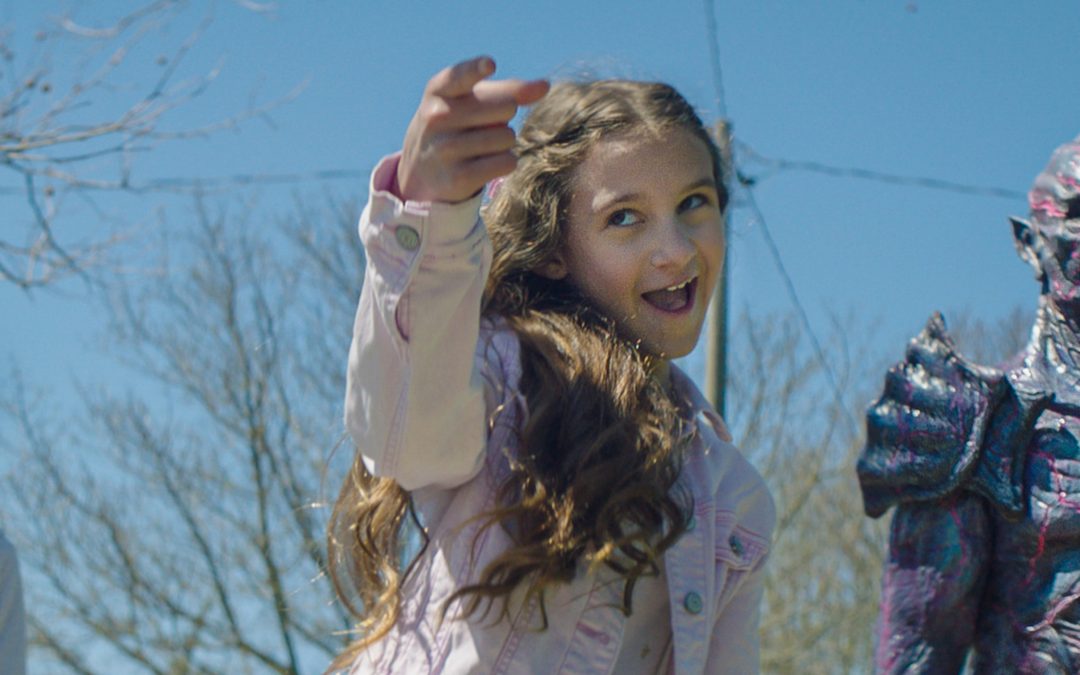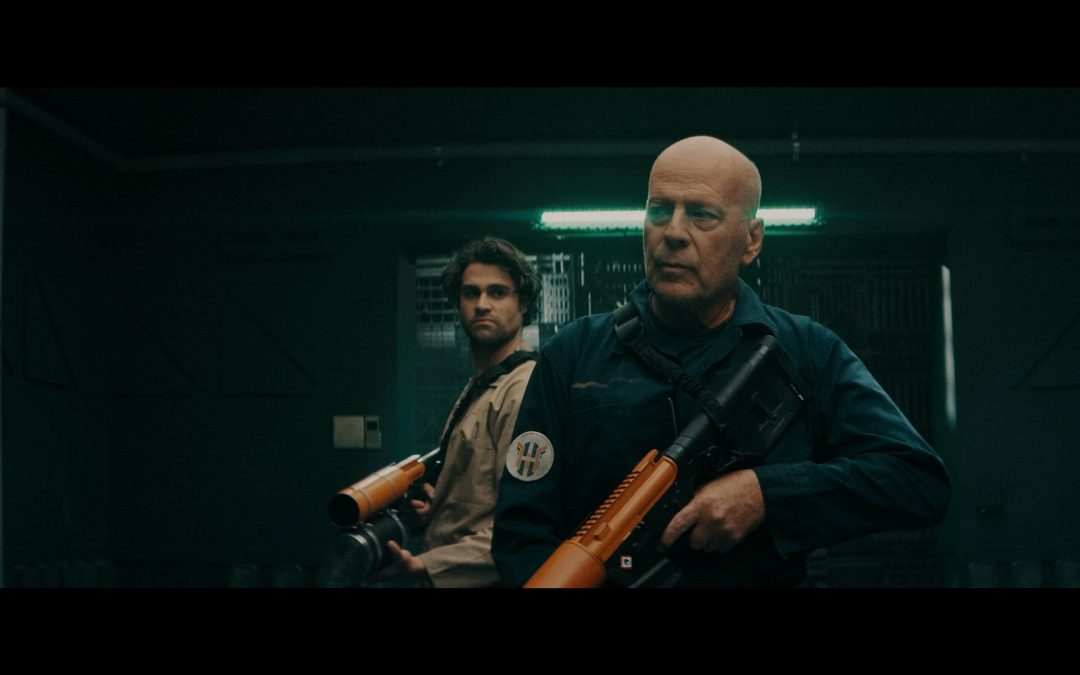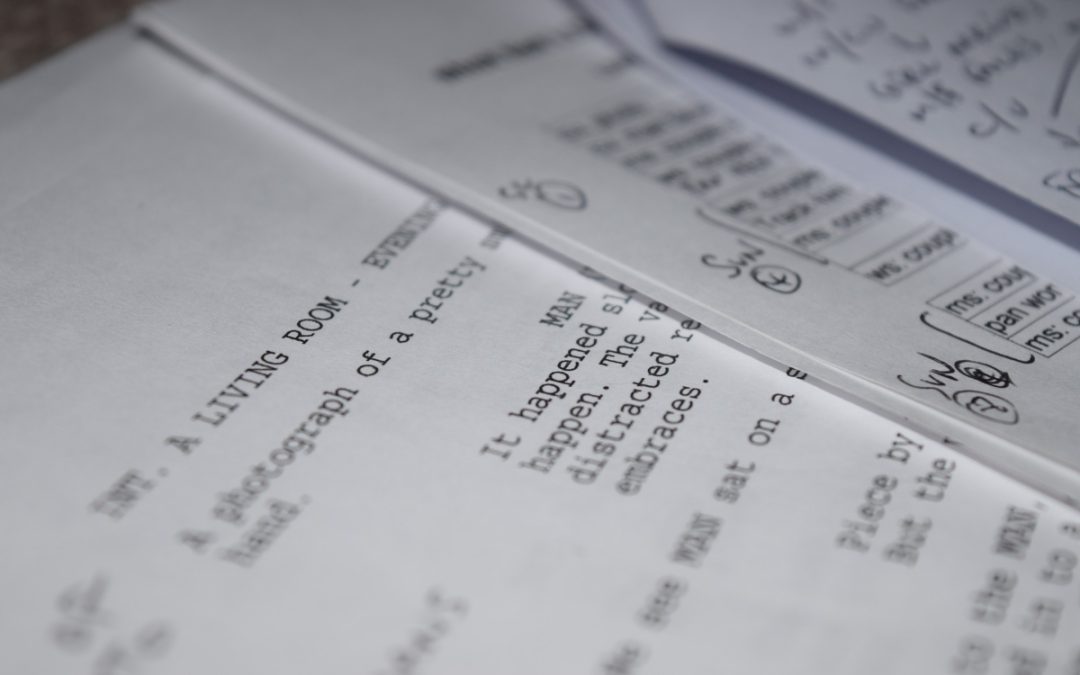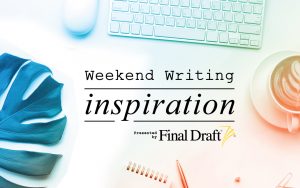
by Jenna | Feb 3, 2021 | Final Draft Articles, Science Fiction
‘Psycho Goreman’ Is a Wacky Homage to Campy Sci-Fi Monsters
An article over on the Final Draft blog with PG: Psycho Goreman writer-director Liam O’Donnell about his writing process, how he spends time on the visual aspects of his stories, and making monsters and aliens galore — all on a meager budget. [read more on the Final Draft blog]
Image courtesy of RLJE Films

by Jenna | Dec 30, 2020 | Final Draft Articles, Science Fiction
A new article over on the Final Draft blog with five screenwriting takeaways from 2067 to draw on as you craft your own sci-fi scripts.
1. A compelling “what if” premise
2. A hook that keeps your audience wondering
3. Global and personal stakes tied together
4. A time travel explainer moment
5. An inevitable but surprising and satisfying conclusion
[read more on the Final Draft blog]
Image courtesy of RLJE Films

by Jenna | Dec 23, 2020 | Final Draft Articles, Science Fiction
5 Screenwriting Takeaways
A new article over on the Final Draft blog with five takeaways sci-fi screenwriters can draw on in their own scripts from Breach, a sci-fi space thriller in the vein of the original Alien and The Thing — but with a twist.
1. Sci-fi is a flexible ‘reality’ genre
2. Ordinary characters in extraordinary circumstances come with a built-in character arc
3. A-list actors lend credibility to a film
4. Tie the global stakes to personal stakes
5. Your title makes a promise to the audience
[read more on the Final Draft blog]
Photo courtesy of Saban Films

by Jenna | Dec 18, 2020 | Final Draft Articles, Science Fiction
An article over on the Final Draft blog with writer-director Liam O’Donnell about how his film Skylines breaks barriers when it comes to writing sci-fi with heavy special effects for the big screen, and also bends a few trilogy story conventions as well. [read more on the Final Draft blog]
Photo courtesy of Vertical Entertainment

by Jenna | Oct 10, 2020 | Final Draft Articles
Despite everything that’s going on I’m thrilled to have finished a major revision of the first act of my script. While there’s more to go, getting the first act sorted for the new vision for the storyline has been a big undertaking. This article goes into my methodology for tackling a major script revision, much of which translates quite handily for novel revision too.

“The beautiful part of writing is that you don’t have to get it right the first time,
unlike, say, a brain surgeon.”
– Robert Cromier

If you’re staring down a major script rewrite it’s easy to feel overwhelmed, particularly when dealing with large-scale structural or character changes—or both! Even though we know “writing is rewriting,” it can be daunting to face a big overhaul, especially if this isn’t the first major revision you’ve made to this script.
One of the biggest obstacles writers face with a major rewrite is mentally releasing the old version and fully embracing the new one. It can feel like two parallel universes jostling to occupy the same space. Without Cisco Ramon from The Flash to breach us between alternate realities, we have to find our own way to span the chasm between the two. I call this bridging the rewrite gap.
If you’re finding yourself having trouble letting go of the old story (Hint: you’re constantly saying, “Well, in the current draft, x happens…”) these six steps will help you make a smoother transition from old to new, as well as expedite your rewrite along the way.
Read the article on the Final Draft blog here:
6 Steps to Tackling a Major Script Revision


by Jenna | Sep 26, 2020 | Final Draft Articles
I’ve been thinking a lot about how to keep writing when the world is both literally and figuratively on fire, which led to this week’s article on the Final Draft blog. It was in part inspired by a Twitter conversation I stumbled across where writers were sharing how unproductive they were feeling. Since I’m finding that the more I lean into writing and our Called to Write community, the more stable, grounded, and productive I feel, I was inspired to write this article about what I’m doing in the hopes of helping you keep writing too, even when things are in such a state of upheaval.

“…your desire to write comes from the urge to not just be “creative,” it’s a need (one every human being on earth has) to help others.”
— Shawn Coyne, The Story Grid.

Right now it feels like, one way or another, the world is falling apart. As a result, writers are more vulnerable to distraction, stress and anxiety than usual. I’m seeing threads, articles and discussions running the emotional gamut; from despair and rage, to hope and determination, while simultaneously making it clear how hard it is to write or do anything other than scroll the news and social media—at least for those of us willing to say so publicly.
Now more than ever, we need our writing community. In that spirit, here are six tips to help you keep writing, even when it feels like things are falling apart.
Read the article on the Final Draft blog here:
6 Tips To Keep Writing When It Feels Like the World Is Falling Apart

Image credit: Photo by Suzy Hazelwood from Pexels







